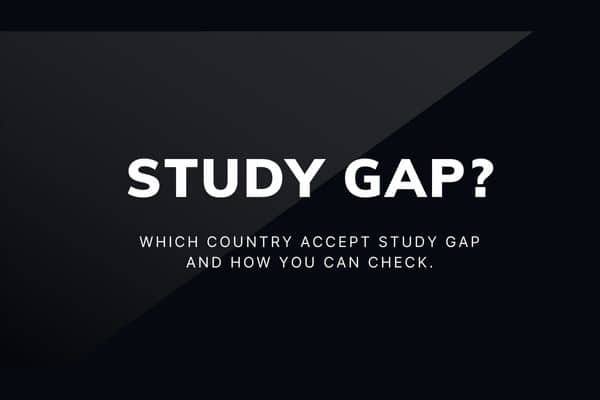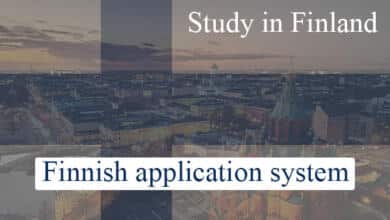Countries that allow Study gaps

There are many countries that accept students with study gaps in their bachelor’s degree programs. Some examples include the United States, Canada, the United Kingdom, Australia, and New Zealand.
It is important to note that each country and institution has its own policies and requirements for admitting students, so it is important to do your research and contact the schools you are interested in attending to see if they have any specific requirements or accommodations for students.
Table of Contents
How many years of Study Gaps are Allowed?
It is difficult to provide a general answer to this question, as the policies on study gaps vary widely from country to country and from institution to institution. Almost all countries worldwide accept gaps, such as the UK, the US, Canada, Australia, New Zealand, China, Japan, etc.
Some schools may not have any specific policies on study gap, while others may have very strict limits on the length of time that can elapse between completing high school and enrolling in a bachelor’s degree program.
While gap year acceptability varies from one university to another, small gaps of one or two years are normal. You will however need to justify large gaps of three to four years though
Some Countries that accept Stuy Gaps
There are many countries that accept students with educational gaps in their bachelor’s degree programs. Some examples include:
United States: Many colleges and universities in the United States do not have specific policies on educational gaps, and will consider applicants with study gap on a case-by-case basis.
Canada: Like the United States, many colleges and universities in Canada do not have specific policies on educational gaps and will consider applicants on a case-by-case basis.
United Kingdom: Some universities in the UK have specific policies on study gaps, while others do not. It is important to do your research and contact the schools you are interested in attending to find out more about their policies on educational gaps and to see if there are any specific requirements or documentation you need to provide in order to be considered for admission.
Australia: Like the United States and Canada, many colleges and universities in Australia do not have specific policies on educational gaps and will consider applicants on a case-by-case basis.
New Zealand: Many universities in New Zealand do not have specific policies on study gaps and will consider applicants on a case-by-case basis.
Germany: Many universities in Germany do not have specific policies on educational gaps and will consider applicants on a case-by-case basis.
France: Like Germany, many universities in France do not have specific policies on study gaps and will consider applicants on a case-by-case basis.
Netherlands: Some universities in the Netherlands have specific policies on educational gaps, while others do not.
Sweden: Many universities in Sweden do not have specific policies on educational gaps and will consider applicants on a case-by-case basis.
Norway: Like Sweden, many universities in Norway do not have specific policies on study gaps and will consider applicants on a case-by-case basis.
Spain: Many universities in Spain do not have specific policies on study gaps and will consider applicants on a case-by-case basis.
Italy: Like Spain, many universities in Italy do not have specific policies on study gaps and will consider applicants on a case-by-case basis.
Poland: Some universities in Poland have specific policies on study gaps, while others do not. It is important to do your research and contact the schools you are interested in attending to find out more about their policies on study gaps and to see if there are any specific requirements or documentation you need to provide in order to be considered for admission.
Czech Republic: Many universities in the Czech Republic do not have specific policies on educational gaps and will consider applicants on a case-by-case basis.
Austria: Like the Czech Republic, many universities in Austria do not have specific policies on study gaps and will consider applicants on a case-by-case basis.
Denmark: Many universities in Denmark do not have specific policies on study gaps and will consider applicants on a case-by-case basis.
Finland: Like Denmark, many universities in Finland do not have specific policies on study gaps and will consider applicants on a case-by-case basis.
Iceland: Some universities in Iceland have specific policies on educational gaps, while others do not. It is important to do your research and contact the schools you are interested in attending to find out more about their policies on study gaps and to see if there are any specific requirements or documentation you need to provide in order to be considered for admission.
Ireland: Many universities in Ireland do not have specific policies on educational gaps and will consider applicants on a case-by-case basis.
Switzerland: Like Ireland, many universities in Switzerland do not have specific policies on study gaps and will consider applicants on a case-by-case basis.
Belgium: Many universities in Belgium do not have specific policies on educational gaps and will consider applicants on a case-by-case basis.
Slovenia: Like Belgium, many universities in Slovenia do not have specific policies on study gaps and will consider applicants on a case-by-case basis.
Croatia: Some universities in Croatia have specific policies on gaps, while others do not. It is important to do your research and contact the schools you are interested in attending to find out more about their policies on study gaps and to see if there are any specific requirements or documentation you need to provide in order to be considered for admission.
Serbia: Many universities in Serbia do not have specific policies on gaps and will consider applicants on a case-by-case basis.
Bosnia and Herzegovina: Like Serbia, many universities in Bosnia and Herzegovina do not have specific policies on study gaps and will consider applicants on a case-by-case basis.
Romania: Many universities in Romania do not have specific policies on gaps and will consider applicants on a case-by-case basis.
Bulgaria: Like Romania, many universities in Bulgaria do not have specific policies on study gaps and will consider applicants on a case-by-case basis.
Hungary: Some universities in Hungary have specific policies on study gaps, while others do not. It is important to do your research and contact the schools you are interested in attending to find out more about their policies on study gaps and to see if there are any specific requirements or documentation you need to provide in order to be considered for admission.
Slovakia: Many universities in Slovakia do not have specific policies on study gaps and will consider applicants on a case-by-case basis.
Ukraine: Like Slovakia, many universities in Ukraine do not have specific policies on study gaps and will consider applicants on a case-by-case basis.
Latvia: Many universities in Latvia do not have specific policies on study gaps and will consider applicants on a case-by-case basis.
Estonia: Like Latvia, many universities in Estonia do not have specific policies on study gaps and will consider applicants on a case-by-case basis.
Lithuania: Some universities in Lithuania have specific policies on study gaps, while others do not. It is important to do your research and contact the schools you are interested in attending to find out more about their policies on study gaps and to see if there are any specific requirements or documentation you need to provide in order to be considered for admission.
Belarus: Many universities in Belarus do not have specific policies on study gaps and will consider applicants on a case-by-case basis.
Moldova: Like Belarus, many universities in Moldova do not have specific policies on study gaps and will consider applicants on a case-by-case basis.
Conclusion
It is important to note that each school has its own admissions requirements and processes, so it is important to do your research and contact the schools you are interested in attending to find out more about their policies on study gaps.
It is important to note that these are just a few examples, and there may be other countries that also accept students with study gaps in their bachelor’s degree programs. It is always a good idea to do your research and contact the schools you are interested in attending to find out more about their policies on study gaps and to see if there are any specific requirements or documentation you need to provide in order to be considered for admission.




